On March 10, 1876, Alexander Graham Bell transmitted the first words by telephone, to his assistant in another room. Bell had received his patent for the telephone three days earlier.
Born in Edinburgh, Scotland, Bell’s work on the telephone was largely inspired by his work with deaf children. His father had invented “Visible Speech,” which was a type of written code that made it easier for deaf mutes to learn to speak. When Bell worked as a teacher in London, he used Visible Speech to teach a class of deaf students.
In the 1870s, Bell moved to Boston to teach at the Pemberton School for the Deaf. Bell was soon convinced that speech could be transmitted over wires. The telegraph had been invented in 1843 and it allowed people to communicate over long distances. But only one message could be sent at a time and hand-delivered messages were still necessary. Bell began working on a “harmonic telegraph,” which combined parts of the telegraph and record player.
Later, Bell met Gardiner Greene Hubbard, the father of one of his students. A critic of Western Union, Hubbard provided financial backing for Bell’s research. Bell began working with machine shop employee Thomas A. Watson to develop a prototype of his invention. One day, while making refinements to his harmonic telegraph, Bell detected the first human voice sounds coming over the telegraph wire. After several more months of experimenting, Bell drew up the first specifications for the telephone and filed his patent on February 14, 1876. He received the patent on March 7, 1876.
Three days later, Bell transmitted the first recognizable words over a telephone line, though the exact phrase is debated by historians. According to one story, while his partner, Watson, was in a different room, Bell spilled battery acid on his clothes and said, “Mr. Watson, come here. I need you!” Incredibly, the words carried over the telephone wire into the next room.
Bell recorded the event in his journal: “I then shouted into M [the mouthpiece] the following sentence: ‘Mr. Watson, come here – I want to see you.’ To my delight he came and declared that he had heard and understood what I said. I asked him to repeat the words. He answered, ‘You said ‘Mr. Watson – come here – I want to see you.’’ We then changed places and I listened at S [the speaker] while Mr. Watson read a few passages from a book into the mouthpiece M. It was certainly the case that articulate sounds proceeded from S. The effect was loud but indistinct and muffled.” Bell popularized his invention by giving public demonstrations, and used the royalties from it in part to fund several organizations that helped educate the deaf.
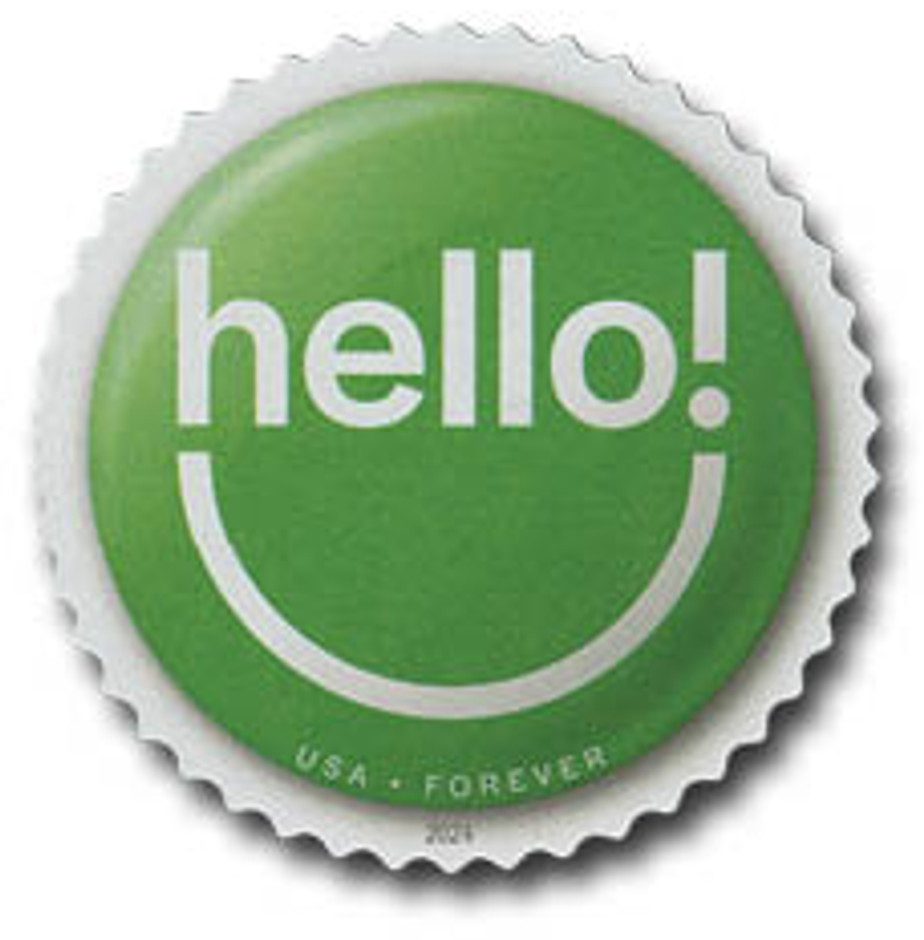
Bell soon faced the first in a series of legal battles over his invention. When he filed his patent, it was recorded as received just two hours ahead of Elisha Gray, a fellow inventor with a similar claim. Gray and Thomas Edison worked with Western Union Telegraph Company to develop their own telephone. Bell sued them, with the Supreme Court upholding his patent rights. The Bell Company faced similar battles in the coming years before emerging as American Telephone and Telegraph (AT&T), one of the nation’s leading communication companies.
The 2020 American Innovation Dollar representing Massachusetts commemorates Bell’s invention:
| FREE printable This Day in History album pages Download a PDF of today’s article. Get a binder or other supplies to create your This Day in History album. |
Discover what else happened on This Day in History.


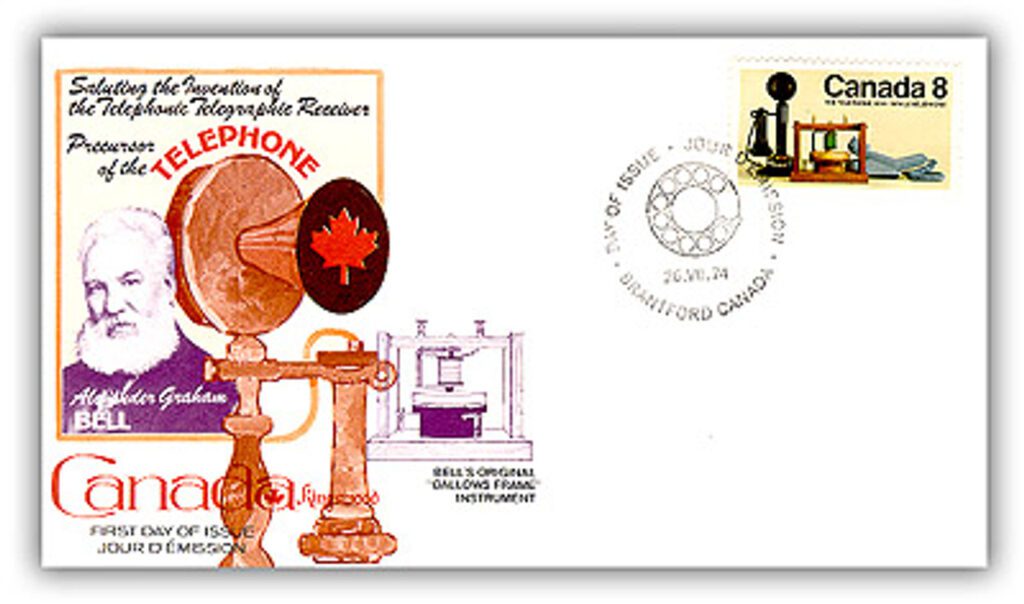

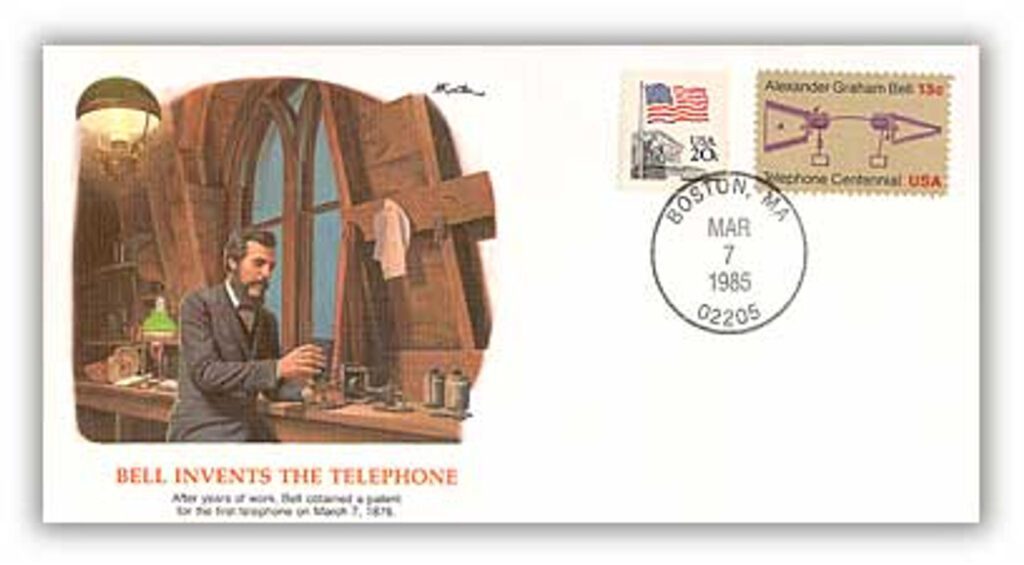
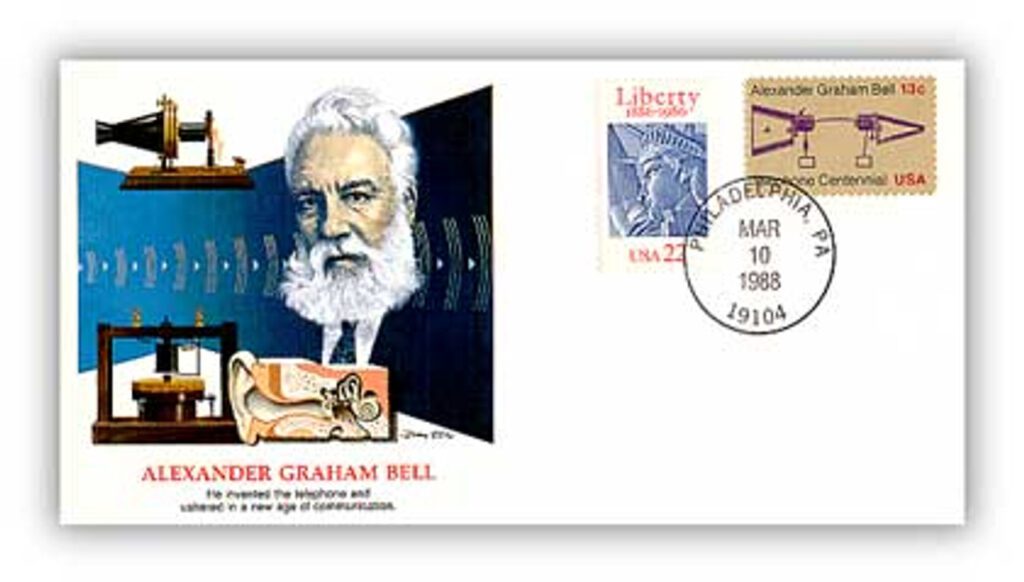
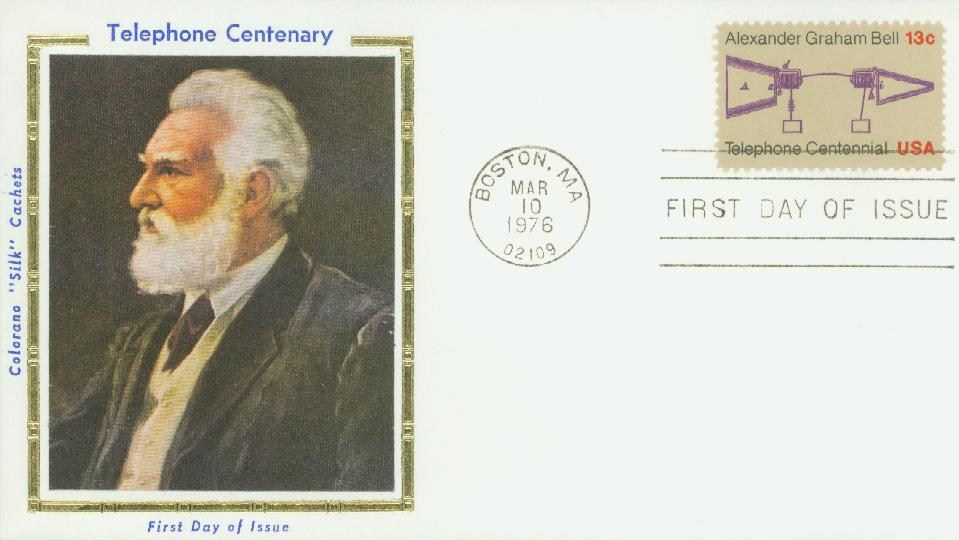
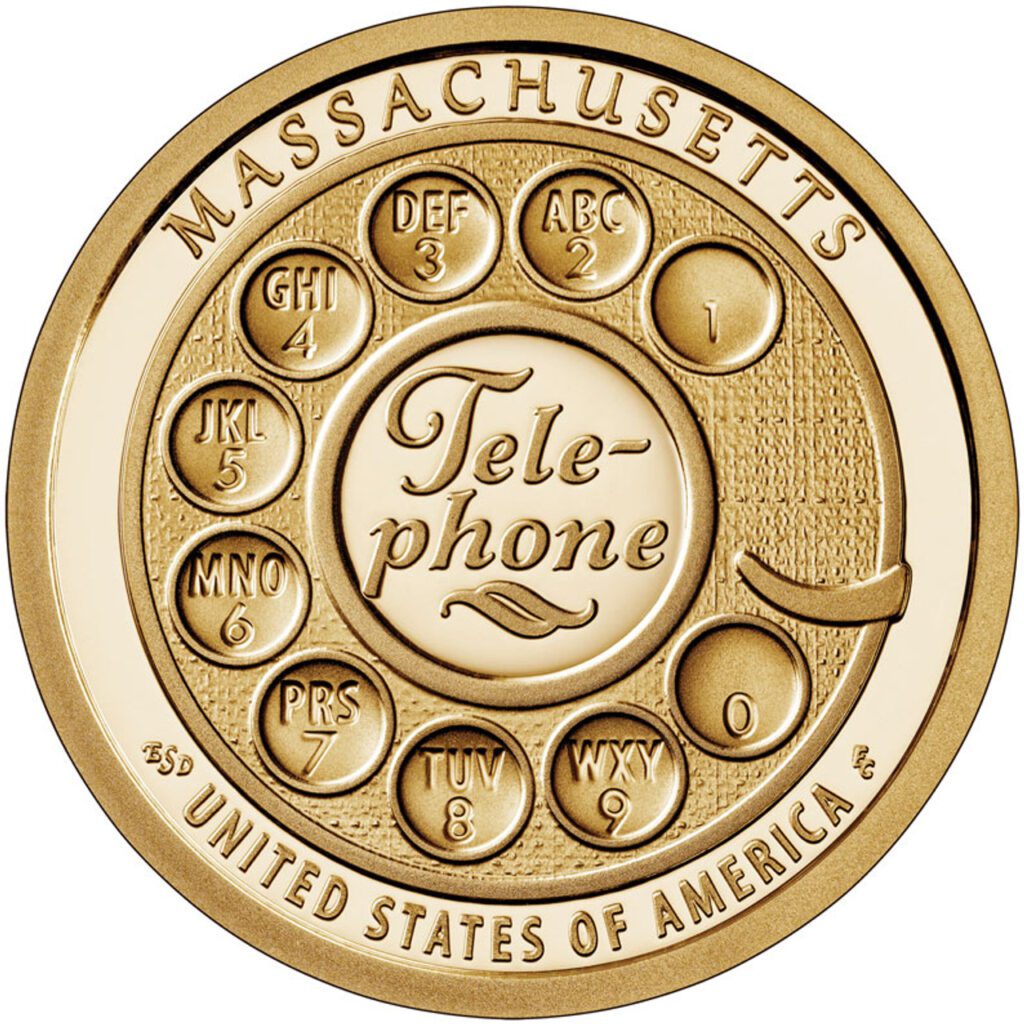
Very interesting article about teaching the speech training to the deaf students. I am a hearing impaired person (deaf).
Fascinating story! And look how far we’ve come today, a hundred forty-five years later, WOW!
Very interesting given uses of “telephones” today as computers central to life. To contemplate the connection between Bell and Steve Jobs/Apple is amazing!
I enjoy my history lesson each day. Thank you. M. Wright